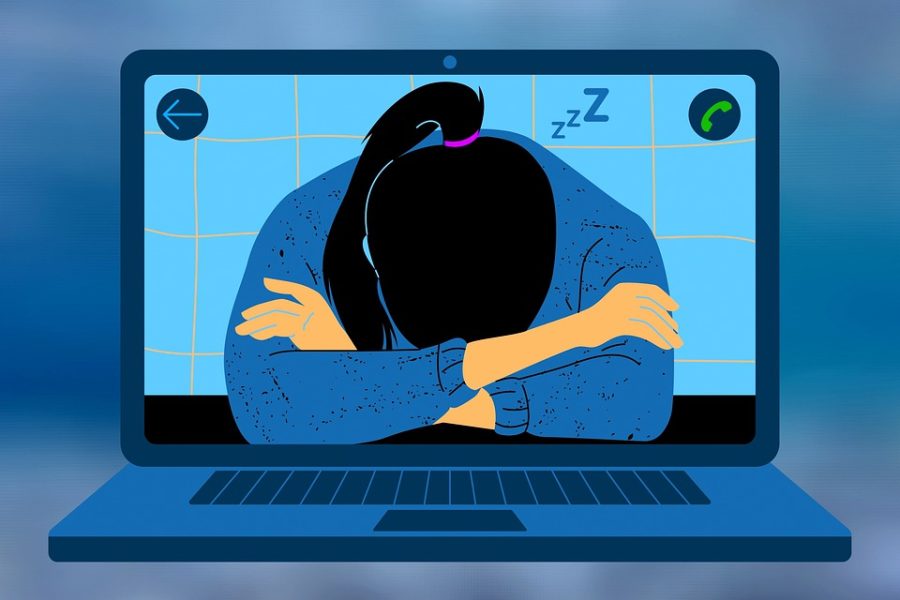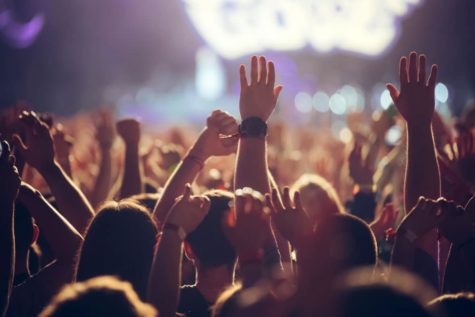How Technology Affects Sleep
https://www.maxpixel.net/photo-6098387
Technology use impacts sleep in various ways, and has shocking impacts on ones health.
According to the study “Sleep Duration and Sleeping Difficulties among Adolescents,” the fact is that 55 percent of adolescents slept less than the recommended eight hours per night and 11 percent had sleeping difficulties. Technology has negatively affected the amount of sleep each person gets per night.
Night sleep is affected by technology use that occurs during the daytime, evening, and at bedtime. Various studies from the Association of Sleep and Technology have found that 90 percent of the studies reported that technology use is unfavorably associated with sleep. Technology has increased the risk of sleeping disorders, delayed bedtime, and a shorter duration of sleep. The average sleep duration of each adolescent in the study was 7.28 hours. Fifty-five percent of the adolescents slept less than the recommended eight hours a night and 26 percent slept less than six hours.
“I get into bed around 10 p.m. but I never fall asleep until one or two a.m.,” college freshman, Nick Ishaug said “Going to bed is kind of a long process for me. I play games on my computer and facetime for about two hours then once I get in bed I go on Instagram for about 15 minutes.”
“My bedtime ranges from nine p.m. and five a.m. but it’s usually around one a.m. I always go on my phone before bed whether it’s for reading or on social media and that ranges from 15 minutes to two hours,” Orono High school senior, Brielle Knapp said.
Technologies in the bedroom have been shown to affect how a person sleeps throughout the night and sleep quality. “The Effect of Computer Game Playing Habits of University Students on their Sleep States” stated that 71 percent of Americans sleep with their smartphones. A startling factor that affects sleep is the increase of entertainment and communication technologies available to each individual. Items such as radios, televisions, gaming consoles, mobile phones for texting and calling, and computers have had a negative impact on total sleep time and daytime functioning.
“I watch TV with my wife for about 20 minutes before bed and often check the news while brushing my teeth but that’s it. We only keep our phones in the room while we sleep but they are completely turned off so no notifications come through to disturb our sleep,” OHS science teacher Andy Kahler said.
“I have my gaming computer, my laptop, and my phone in my room when I sleep. My roommate Joe also has those same things on his side of the room. My phone is always on. I never put it on ‘do not disturb’ just in case of certain things happening. If I can’t sleep at night, I usually go on my phone until I feel tired again,” Ishaug said.
“I do not have any electronics in my room at night. I sometimes go on my mom’s phone before bed for 30 minutes, but I get very distracted if an electronic is by me,” elementary student Zoey Oslund said.
According to Unplug and Recharge, the average smartphone user touches their phone 2,617 times every day. Technology companies are in a full arms race to capture human attention. The use of smartphones is not really an addiction; it’s an anxiety-based disorder. Often times we are not checking it for pleasure, we’re checking it to remove any anxiety we may have. It is important to be comfortable with being bored, having social anxiety, and loneliness.
“I am constantly on the phone and checking for new notifications,” father of five, Brandon Oslund said, “I have two phones, one for work and one personal. I never really get a break from looking at my phone but if I do find a break from work I find myself reading real news stories.”
A study at Michigan State University has confirmed that using any kind of technology before sleep can cause a “hangover” the next day. People who are on their phones cramming in time on their devices after nine p.m. are going to be notably more tired and less productive compared to the “unplugged” coworkers or classmates. The study also pointed out that blue light emitted from smartphones interferes with the normal level of melatonin in our bodies. Melatonin is a chemical in our bodies that encourages us to feel tired and sleep.
Ishaug, who plays video games and facetime every night for about two hours stated, “I need coffee every day. I am tired from the time I wake up to the time I go to bed.”











